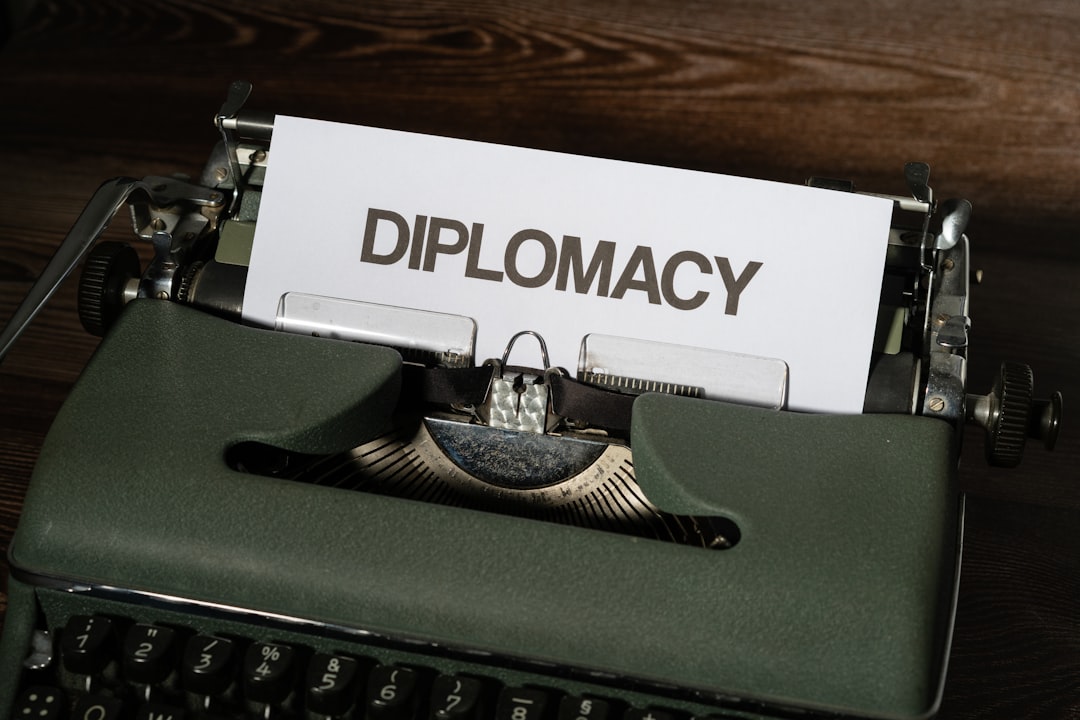
Bipartisan Compromise: The Secret Sauce for International Diplomacy
In a world where global challenges await like a pack of wolves, it’s essential to understand that international diplomacy is not a game of tug-of-war. Instead, it’s a delicate dance that requires precision, cooperation, and—wait for it—bipartisan compromise. Yes, I said it. The dreaded “C” word that sends shivers down the spines of both right and left. But what if I told you that this magical elixir could be the key to unlocking effective international relations?
The Current Landscape: A Diplomatic Minefield
The geopolitical landscape today resembles a patched-up quilt of conflicts, from trade wars to climate change. As countries grapple with issues that transcend borders, the need for a united front has never been more pressing. However, our politicians seem more interested in their partisan battle royales than in finding common ground. It’s almost as if they believe that diplomacy is a zero-sum game, where any concession made is a loss to their side. Spoiler alert: it’s not.
Consider the ongoing trade tensions with various nations. If only our elected officials would put aside their differences long enough to realize that a bipartisan approach could lead to more robust trade agreements. Instead, we have a situation where negotiations are stalled, and the only thing that seems to flourish is mutual resentment.
The Data Speaks: Compromise Works
Research supports the idea that bipartisanship leads to more effective and sustainable outcomes. A study by the Brookings Institution found that bipartisan legislation is more likely to endure over time. Why? Because it garners broader support from the populace, making it harder for future administrations to just roll back efforts. When it comes to international diplomacy, this is critical. Global agreements require trust and commitment, both of which are fostered through compromise.
Take the Paris Agreement on climate change, for instance. It’s a classic case of bipartisan effort leading to global cooperation. While some may argue it’s flawed, the very fact that it was a collaborative effort gives it a stronger foundation. What if we could harness that spirit of unity for other pressing global issues, like nuclear disarmament or the refugee crisis?
Real-World Examples: Bipartisan Successes
Let’s not forget past bipartisan successes that have yielded positive international outcomes. The post-World War II Marshall Plan is a prime example. It wasn’t just a “let’s help Europe” initiative; it was a strategic maneuver that required buy-in from both sides of the aisle. The result? A reinvigorated Europe and a stable international order that has benefited us all.
More recently, the Abraham Accords, which normalized relations between Israel and several Arab nations, showcase that when Republicans and Democrats come together, remarkable achievements can be made. It’s time we stop treating diplomacy like a checkbox on a political agenda and start seeing it as a vital necessity for global stability.
The Counterargument: Partisan Politics
Of course, you can’t have a discussion about bipartisanship without addressing the elephant in the room: partisan politics. Critics argue that compromise is often a slippery slope leading to watered-down policies that don’t serve anyone’s interests. And while I get that sentiment, let’s not throw the baby out with the bathwater.
Sure, there are instances where compromise leads to unsatisfactory outcomes, but that doesn’t mean we should abandon the notion altogether. Instead, we should aim for a higher standard of debate and negotiation—one where the focus is on what’s best for the country and the world, rather than what’s best for the next election cycle.
Conclusion: The Road Ahead
As we gaze into the future of international diplomacy, one thing is clear: the challenges we face are too great to be tackled by a single party. Bipartisan compromise is not just essential; it’s the lifeblood of effective diplomacy. It’s time for our leaders to stop playing chicken and start working towards solutions that benefit not just their constituents but the global community as well.
So, let’s raise our glasses to bipartisanship—the unsung hero of international diplomacy. Because if we can’t find common ground on the global stage, we might as well hand over the keys to the World Economic Forum and let them decide our fate, which, as we all know, is a terrifying thought.
The clock is ticking, and the world is watching. Will our politicians step up to the plate, or will they continue to play their petty games? Only time will tell. But let’s hope it’s not too late.
Tags: opinion, editorial, current events, Bipartisan Compromise, International Diplomacy, global challenges, political unity.


